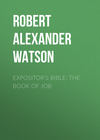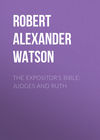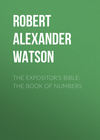Kitabı oku: «Expositor's Bible: The Book of Job», sayfa 19
Bir şeyler ters gitti, lütfen daha sonra tekrar deneyin
Türler ve etiketler
Yaş sınırı:
12+Litres'teki yayın tarihi:
30 haziran 2018Hacim:
410 s. 1 illüstrasyonTelif hakkı:
Public Domain

